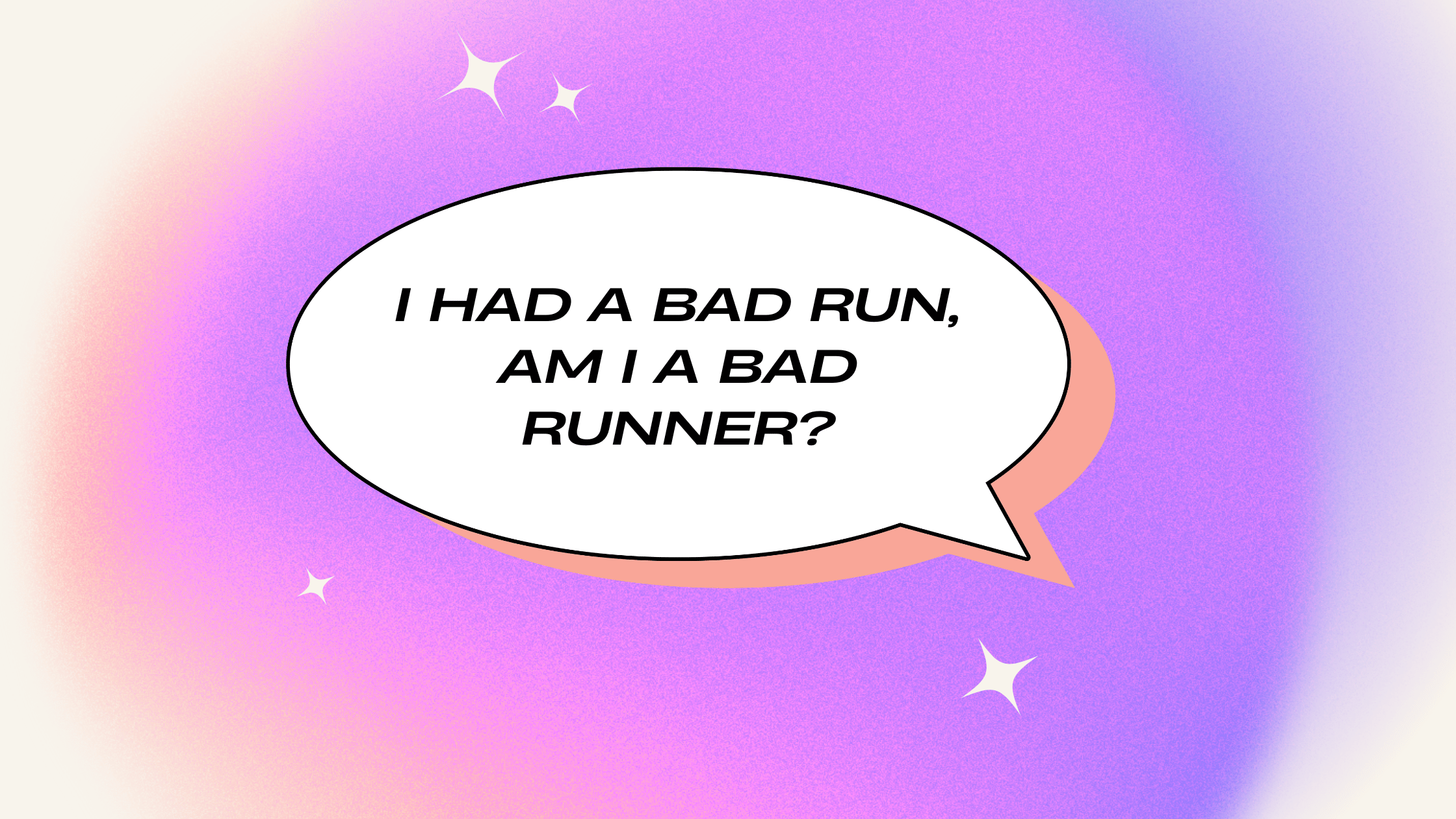How to overcome not achieving a goal
I’m going to start this by celebrating how amazing you are. You finished a marathon! Regardless of the time you finished, that is a huge achievement and running milestone. Approximately 0.01% of the global population reach that milestone each year, and you are now part of the club – go Queen!
There’s been an explosion in running popularity over the last few years and I think it’s great that more people have the confidence to give running a go. However, social media tends to skew our perspective that everyone is suddenly busting out marathons and ultras. Social media also gives us the chance for instant comparison to others’ paces and times (and it’s human nature to notice runners and athletes who we perceive to be faster, “fitter” or stronger than us). But finishing a marathon is exceptional, not standard. You’ve shown a huge amount of strength, grit and resilience just getting to the start line, let alone actually completing the race.
Why does it hit so hard when we don’t achieve a goal?
The majority of runners experience the “post-race blues”, regardless of the outcome. The long build up to a marathon takes a physical and emotional toll, causing fatigue, hormonal shifts and an emotional dip or feeling flat, without such a big goal to focus on.
You obviously deeply cared, trained hard and were invested in your goal. It is totally normal and understandable to feel disappointed, angry or be on a bit of an emotional rollercoaster. Give yourself space to feel your feelings – our feelings are always valid, honour them, let them be there. It’s ok to grieve an expectation of your time, compare yourself to the version of you who ran 30 minutes faster and feel fed up with running.
Runners often tie their identity and self-worth to performance outcomes. You may usually be a hype girl, who’s enthusiastic, passionate and encourages others, feeling flat and maybe falling out of love with running, probably doesn’t fit with your usual values and sense of self.
Missing a goal can trigger self-doubt, negative self-talk and catastrophic thinking (like “Why would I bother running anymore” or “I’m a failure”).
However, as Wilma Rudolph (a world record holder and Olympic Champion) said: “Winning is great, sure, but if you’re really going to do something in life, the secret is learning how to lose”.
Reframing the narrative:
It is ok to fail, miss time targets and have runs that don’t go to plan. Failure is an intrinsic part of being a runner and it’s an important part of personal growth (and I could argue that we can’t fail in running, as we’re always learning). Take this time as an opportunity to reflect on the parts of the race and training that you feel proud of; what you can make use of for next time; is there anything you would do differently; what have you learnt about yourself?
Your value as a runner and as an individual is not defined by one race nor is it defined by a result. You are worth so much more than a race time or goal. Instead of focusing on your time goal, what else did you achieve? Notice negative thoughts that are getting stuck and try telling yourself a different story:
- You overcame challenges and setbacks to finish 42.2km
- You didn’t give up, despite setbacks
- What are the successes that can’t be measured by a time on the clock (problem-solving through setbacks; consistent training; setting yourself a big scary goal and showing up for yourself)
Show yourself kindness and self-compassion. We know that shame isn’t an effective motivator and isn’t likely to get you back running in the long-term. Try thinking about what you’d say to someone you really care about, and then try turning this inwards and saying the same thing to yourself (e.g. “I did the best I could and I’m proud of myself for trying”). Surround yourself with people who love you unconditionally and are proud of your resilience not your race times.
Reconnect with your why:
Why did you start running? What made you decide to train for a marathon? What else have you achieved in the past year? What do you value as a runner beyond time and pace? Try connecting with the intrinsic motivators, the things that you find joyful about running (such as the community, being outside, seeing the amazing things your body can do, knowing you can do hard things).
Goal setting:
Take some time for the dust to settle. You don’t have to leap onto the next thing or the next goal straight away. Your body needs time to heal but it’s also time to reconnect with the joy of running. Try thinking of some process-based goals like having some chatty runs with friends, pacing someone, mindful movement without any time goals or having something else to focus on e.g. booking a holiday, engaging in the other things you enjoy outside of running that feel nurturing and healing.
Getting your spark back
Your “hype” might feel a bit dimmed right now, but your spark isn’t gone. Challenging experiences make you more relatable to others and more inspiring, and your capacity to encourage others will come back stronger than ever. But also let others take on that role, while you take time to recover and heal.
Being a runner involves building physical strength but also learning psychological flexibility: being able to adapt your mindset in the face of difficulties. What you’re feeling isn’t a flaw, it’s an opportunity to grow holistically as an athlete.

-(19).png)
-(42).png)
-(39).png)







.svg)
.png)